With research interests in space, health monitoring, water systems, oil recovery and polymer science, environmental sustainability, biological networks and geomechanics, this year’s incoming faculty members exhibit a wide range of engineering expertise. Learn more about these professors below:
Srinivas Bettadpur
Associate Professor
Department of Aerospace Engineering and Engineering Mechanics
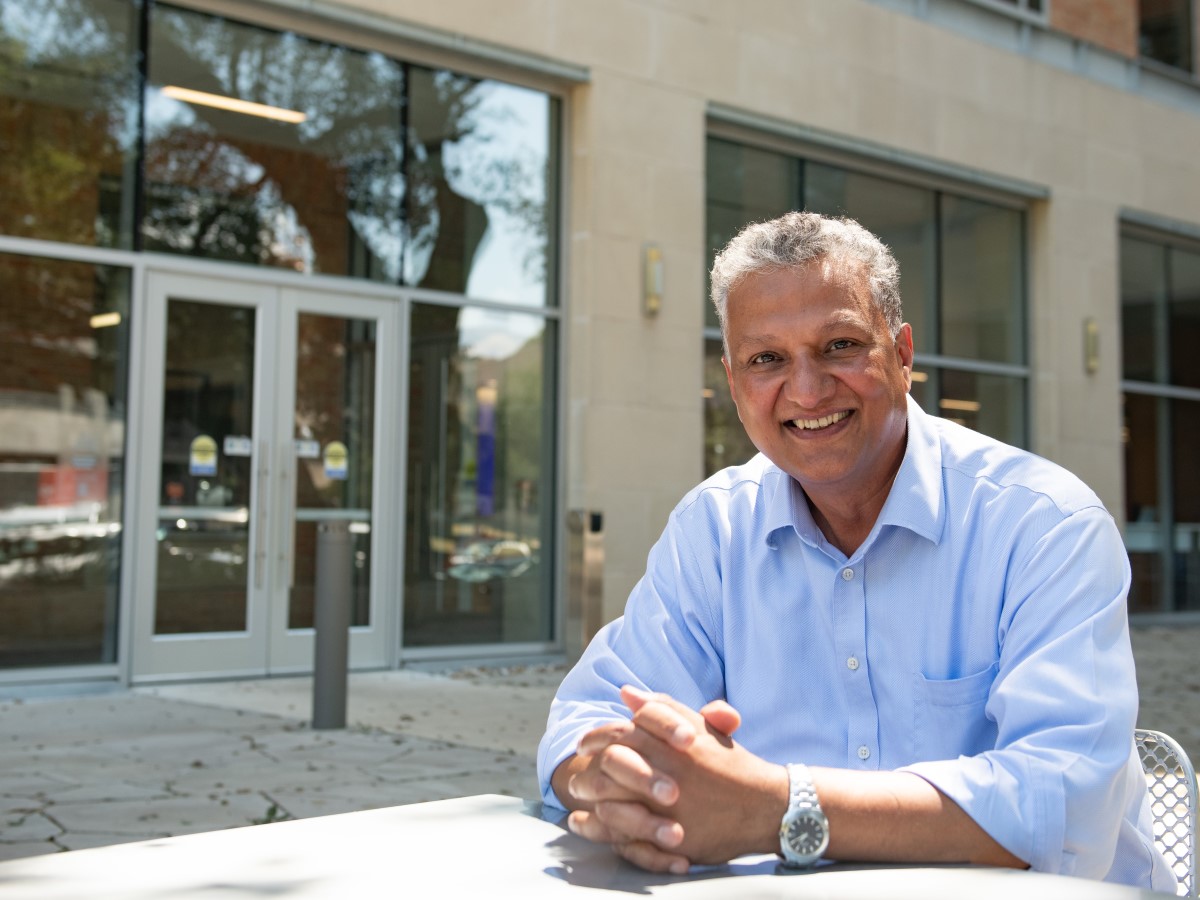
Bettadpur became an associate professor in the Cockrell School after serving as a research professor for 15 years in the school’s Center for Space Research (CSR).
Bettadpur’s area of expertise is orbital mechanics and space geodesy. His research is focused on the modeling and analysis of Earth’s dynamics through space-based metrology and remote sensing, and the connections between global space-geodetic measurements and their regional applications. Current areas of interest include the estimation of Earth’s global gravity field variations from satellite tracking; applications of diverse remote-sensing methods to the study of the regional water cycle in Texas; and multi-technique space-geodetic methods for precision global reference frames.
He received his Ph.D. from UT Austin and his master’s degrees from the Indian Institute of Technology (Kanpur) and the University of Oklahoma. He completed his undergraduate degree at the Punjab Engineering College in India.
Bettadpur is a fellow of the International Association of Geodesy, and an associate fellow of the American Institute of Aeronautics and Astronautics. As a member of CSR, he helped to conceive, propose and execute NASA’s GRACE twin satellite mission. He was a recipient of the NASA/USGS William T. Pecora Award in 2007.
What attracted you to UT Austin?
The Cockrell School’s Department of Aerospace Engineering and Engineering Mechanics is the best and most famous place for research in orbital mechanics. This attracted me here as a student, and since then, I have stayed here and contributed to the growth and the reputation of CSR in this field.
What do you enjoy most about engineering or your specific field?
I enjoy the great diversity of physical phenomena that I can research. The earth is a fascinating object, and the opportunity to blend my love of dynamics with earth science applications is the most enjoyable aspect of my work.
What are your favorite hobbies?
Reading, touring and sightseeing. The quintessential American road trips, magnificent sights at home and around the world — it is enough to keep me busy for a lifetime.
Kasey Faust
Assistant Professor
Department of Civil, Architectural and Environmental Engineering
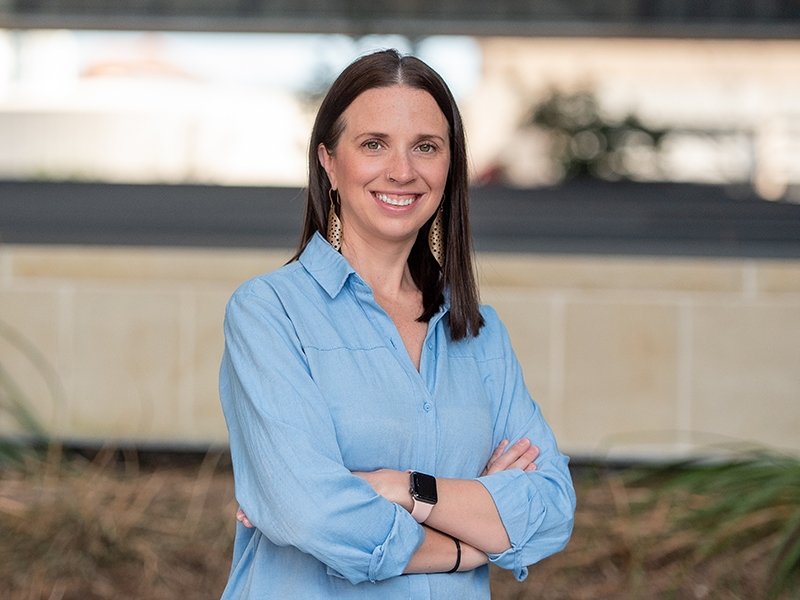
Faust’s research interests include water infrastructure decisions and the impact assessment of urban decline on water sector infrastructure systems.
She earned her Ph.D. in civil engineering in 2015 from Purdue University. She also received two master’s degrees from Purdue in industrial engineering and civil engineering in 2010 and 2013, respectively. She received her bachelor’s degree in environmental engineering from the University of Washington.
As a graduate student, Faust was named a National Science Foundation Graduate Fellow. She also received the William D. Shuck Fellowship and the Knox Fellowship. Her NSF-funded research has focused on the impact of shrinking cities on critical infrastructure. Shrinking cities are cities encountering a substantial population decrease and are becoming more prevalent both nationally and internationally.
What attracted you to UT Austin?
The Department of Civil, Architectural and Environmental Engineering’s strategic plan looking at the water, energy and city nexus caught my attention, as I truly believe in the necessity of exploring these infrastructure systems from a coupled human-infrastructure approach. Additionally, the wonderful and supportive faculty who are pushing the boundaries of their fields, the talented and diverse students, and the resources provided by the university.
What do you enjoy most about engineering or your specific field?
I am drawn to engineering because of its immense capacity to improve the quality of life within communities. The ability to work with critical infrastructure systems that are necessary lifelines for our health and livelihoods, and to improve the performance and operations of these systems is really exciting.
What are your favorite hobbies?
I enjoy yoga, running, reading, hiking and camping. I really enjoy any activity that gets me outside and moving.
Milos Gligoric
Assistant Professor
Department of Electrical and Computer Engineering
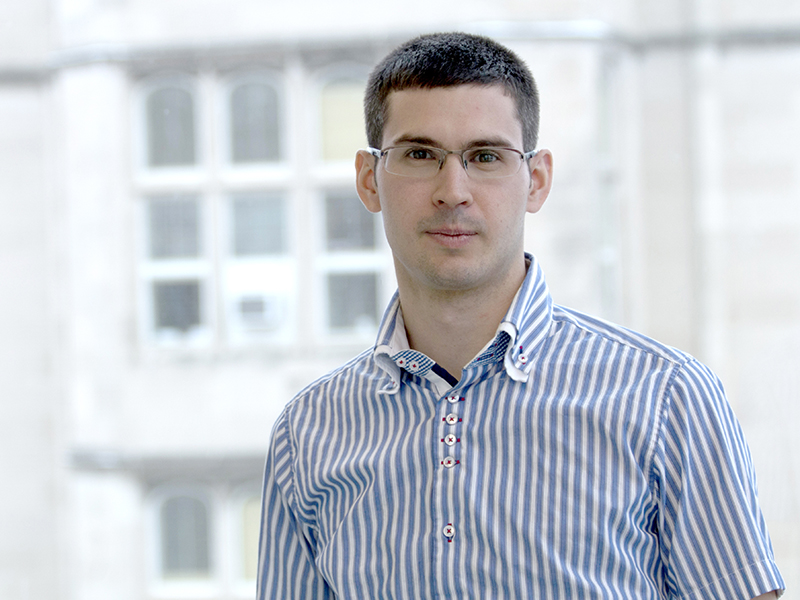
Gligoric’s research interests are in the field of software engineering and formal methods, especially in designing techniques and tools that improve software quality and developers’ productivity. His doctoral work explored test-input generation, test-quality assessment, testing concurrent code and regression testing.
He holds a Ph.D. from the University of Illinois at Urbana-Champaign and master’s and bachelor’s degrees from the University of Belgrade, Serbia.
He was awarded the Saburo Muroga Fellowship, the C.L. and Jane W-S. Liu Award and the C.W. Gear Outstanding Graduate Award from the University of Illinois’ Department of Computer Science, and the Mavis Future Faculty Fellowship from the the University of Illinois’ College of Engineering. As a graduate student, he completed internships at NASA’s Ames Research Center, Intel, the Max Planck Institute for Software Systems and Microsoft’s research division.
What attracted you to UT Austin?
UT Austin is well known for the excellent research and wonderful working environment. Additionally, I have closely collaborated on several research projects with faculty and students from UT Austin.
What do you enjoy most about engineering or your specific field?
The impact that we have on millions of lives every day.
Zoya Heidari
Assistant Professor
Department of Petroleum and Geosystems Engineering
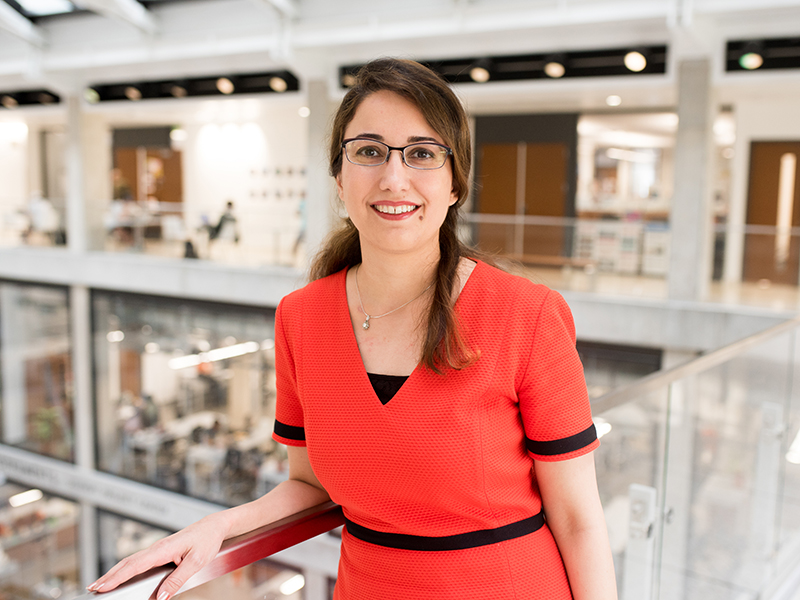
Heidari’s research interests include petrophysics, borehole geophysics, rock physics, inverse problems, completion petrophysics and reservoir characterization of unconventional reservoirs.
Before coming to UT Austin, Heidari was an assistant professor at Texas A&M University and the Chevron Corporation faculty fellow in petroleum engineering.
She received her Ph.D. in petroleum engineering from the Cockrell School in 2011. She is one of the recipients of the 2014 Texas A&M Engineering Experiment Station’s Select Young Faculty Fellows award and the 2012 Society of Petroleum Engineers’ (SPE) Petroleum Engineering Junior Faculty Research Initiation Award. She was also one of the recipients of the 2015 SPE Innovative Teaching Award. Heidari has supervised 15 graduate students since 2011 and published more than 60 publications in peer-reviewed journals and conference proceedings. She currently serves on the technical committee for the Society of Petrophysicists and Well Log Analysts (SPWLA) annual symposium, the SPWLA education committee and steering committees for SPWLA topical conferences on completion petrophysics and unconventional reserves task force summit.
What attracted you to UT Austin?
As a UT Austin alumna, I strongly believe in the fact that what starts here changes the world, as it has changed mine. Furthermore, UT Austin has the top petroleum engineering program in the world, which makes it an attractive place for anyone who strives to be on the leading edge in the field of petroleum engineering.
What do you enjoy most about engineering or your specific field?
My field of expertise — formation evaluation — is a multidisciplinary field about revealing what the subsurface looks like and is composed of, as well as locating hydrocarbon-bearing zones in the subsurface. It touches people’s everyday lives by providing fossil energy in an efficient way.
What are your favorite hobbies?
I enjoy painting, rowing and developing new recipes. I also love traveling and spending time in nature.
Nathaniel Lynd
Assistant Professor
McKetta Department of Chemical Engineering
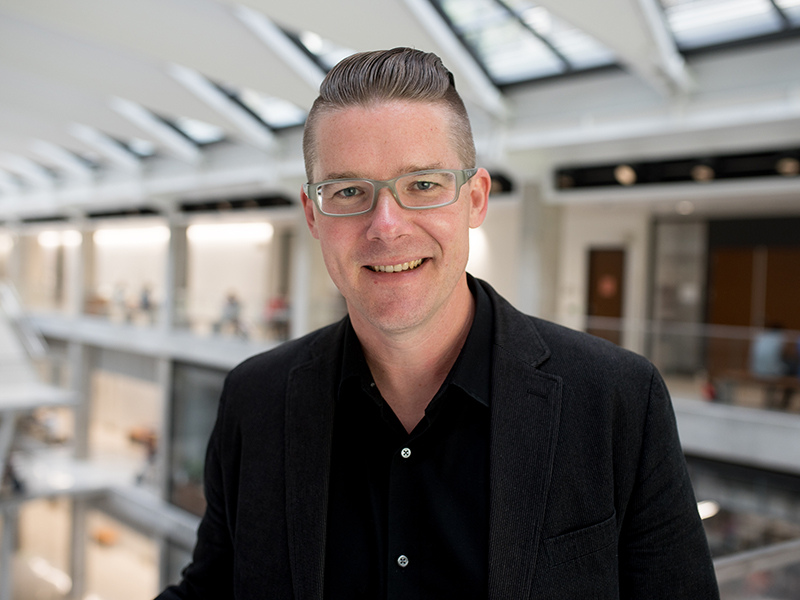
Lynd’s research focuses broadly on polymer sciences, including areas such as modeling, design and synthesis of membranes for capture of carbon dioxide; synthesis of degradable biomedical materials; and understanding ion transport in polymer electrolytes.
Lynd came to UT Austin from the materials sciences division at Lawrence Berkeley National Laboratory where he was a staff scientist.
He received his bachelor’s degree from Michigan State University and his Ph.D. from the University of Minnesota, focusing his work on the exploration of the effects of molecular weight dispersity on block polymer self-assembly. After his doctoral studies, he moved to California as a postdoctoral scholar at the University of California, Santa Barbara, in the materials research laboratory.
What attracted you to UT Austin?
What drew me to UT Austin were the students and my colleagues in chemical engineering.
What do you enjoy most about engineering or your specific field?
In my field, we are very much designers and makers of new materials. I find it deeply satisfying to connect fundamental knowledge with real-world applications and even more stimulating when the design of new materials leads to new fundamental knowledge.
What are your favorite hobbies?
I enjoy spending time with my friends and family, reading science fiction, running and cooking.
Ryosuke Okuno
Assistant Professor
Department of Petroleum and Geosystems Engineering
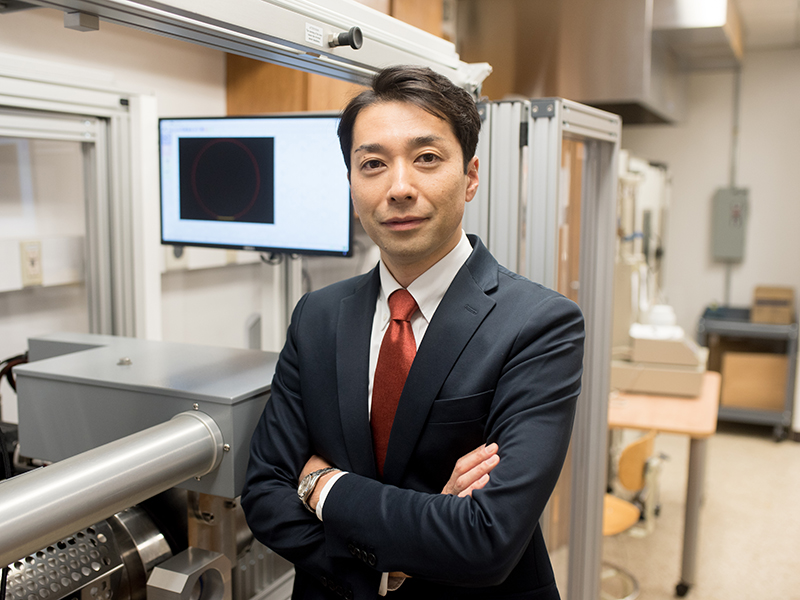
Okuno’s research and teaching interests include enhanced oil recovery, thermal oil recovery, oil displacement theory, numerical reservoir simulation, thermodynamics, multiphase behavior and applied mathematics.
He joins the Cockrell School after serving as an assistant professor of petroleum engineering at the University of Alberta, Canada.
Okuno has seven years of industrial experience as a reservoir engineer with Japan Petroleum Exploration Co. Ltd., and is a registered Professional Engineer in Alberta, Canada. He holds bachelor’s and master’s degrees in geosystems engineering from the University of Tokyo and a Ph.D. in petroleum engineering from UT Austin. He is a recipient of the 2012 Society of Petroleum Engineers’ Petroleum Engineering Junior Faculty Research Initiation Award. He is currently an associate editor for the Journal of Natural Gas Science and Engineering.
What attracted you to UT Austin?
The tradition, the high-quality students and the high-quality faculty and staff.
What do you enjoy most about engineering or your specific field?
What I enjoy most about engineering is the direct contribution to the industry.
What are your favorite hobbies?
Swimming.
Salvatore Salamone
Assistant Professor
Department of Civil, Architectural and Environmental Engineering
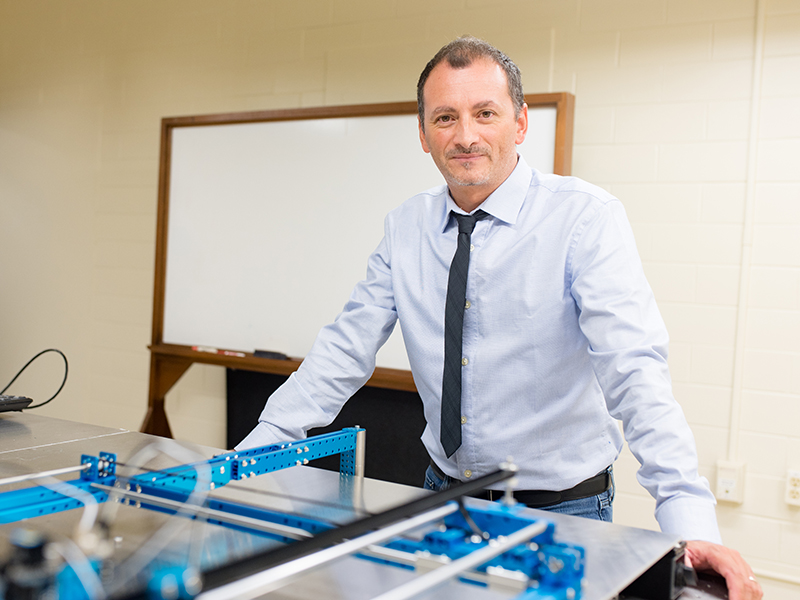
Salamone’s current research interests include structural health monitoring, non-destructive evaluation, ultrasonic sensing methods for smart structures, wave propagation in solids, digital signal processing and pattern recognition.
Before joining the Cockrell School, Salamone was an assistant professor in civil engineering at the State University of New York at Buffalo.
His research has received support from the National Science Foundation, the U.S. Department of Transportation and the New York State Pollution Prevention Institute. Additionally, he has published 33 peer-reviewed journal papers and over 50 conference papers and presentations.
He received his Ph.D. from the University of Palermo, Italy, and was a postdoctoral fellow at the University of California, San Diego.
Salmone’s research contributions have recently been recognized by the 2014 Achenbach Medal, an international award that recognizes an individual who, within 10 years of earning his or her Ph.D., has made an outstanding contribution to the advancement of the field of structural health monitoring. He has also received the 2011 Faculty Grant Award from the American Society for Nondestructive Testing.
What attracted you to UT Austin?
The civil engineering program ranks among the top in the country, and faculty have received the distinction of being selected for membership into the prestigious National Academy of Engineering.
What do you enjoy most about engineering or your specific field?
I believe the multidisciplinary nature of my research gives students an uncommon experience within engineering research.
What are your favorite hobbies?
Cooking, playing guitar, soccer, reading and watching movies.
David Soloveichik
Assistant Professor
Department of Electrical and Computer Engineering
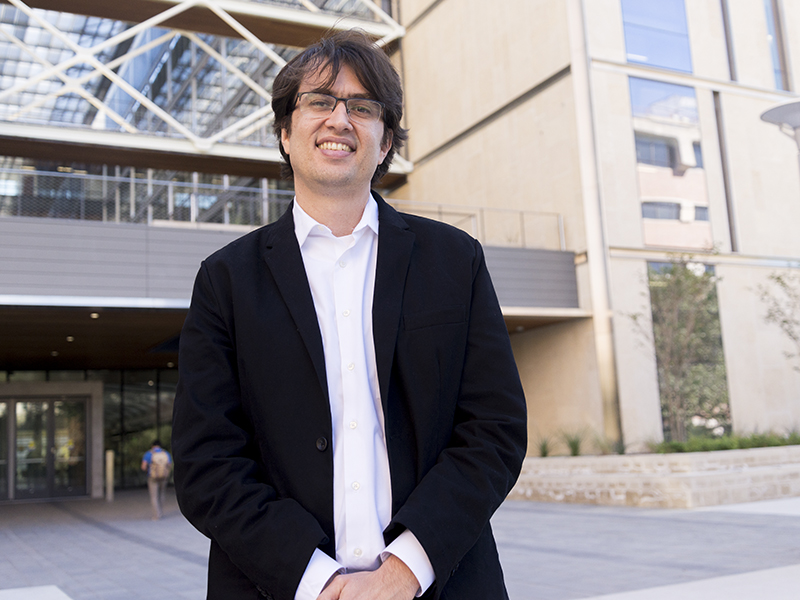
Soloveichik’s scientific area of interest is molecular programming, including the engineering of complex molecular systems for synthetic biology, nanotechnology, and bioengineering. He is also studying underlying theoretical connections between distributed computing and molecular information processing.
Soloveichik joined the Cockrell School after serving as a fellow at the Center for Systems and Synthetic Biology at the University of California, San Francisco.
He received his bachelor’s and master’s degrees in computer science from Harvard University. He received his Ph.D. in computation and neural systems at the California Institute of Technology, where his dissertation was awarded the Milton and Francis Clauser Doctoral Prize for the best Ph.D. thesis.
Soloveichik was the recipient of the Feynman Prize in Nanotechnology (Theory) from the Foresight Institute in 2012 and the Tulip Award from the International Society for Nanoscale Science, Computation and Engineering in 2014.
What attracted you to UT Austin?
UT Austin has a unique combination of world-class theoretical research and experimental groups and is located in a vibrant and weird music capital of the world.
What do you enjoy most about engineering or your specific field?
I believe that making something from scratch is the ultimate test of our understanding. Since we don’t yet understand how the molecules of life work, what could be more thrilling than learning how to make life-like molecular parts and program their behavior?
What are your favorite hobbies?
I enjoy reading, hiking, making apps and building/flying remote control airplanes with my kids. The hobby on the back burner is to design a computer game.
Ufuk Topcu
Assistant Professor
Department of Aerospace Engineering and Engineering Mechanics
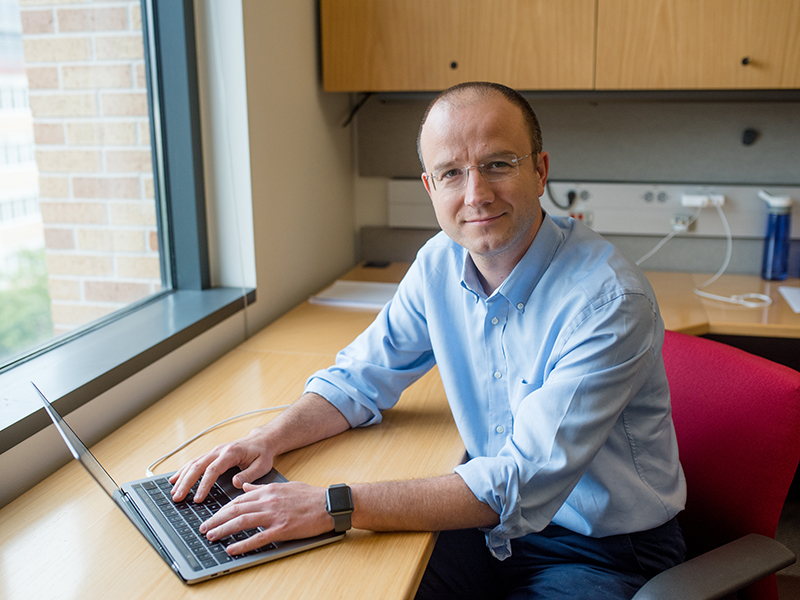
Topcu’s research is focused on the design and verification of autonomous networked systems.
Prior to coming to UT Austin, he was a postdoctoral scholar at the California Institute of Technology and before that, he was a research assistant professor at the University of Pennsylvania.
He received his Ph.D. from the University of California, Berkeley. He has his bachelor’s degree from Bogazici University in Turkey and his master’s degree from the University of California, Irvine.
What attracted you to UT Austin?
The university provides a supportive and diverse environment for a junior faculty member to become successful.
What do you enjoy most about engineering or your specific field?
The perspective of “how I can change — engineer — the world” brings up a new opportunity and a new challenge every day. There is no room for boredom.
What are your favorite hobbies?
I enjoy movies, walks, searching for (and eating) good food and watching my favorite soccer team’s games.
